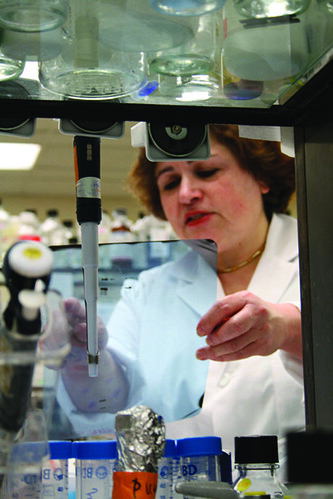Biology chair Shohreh Amini has received $6 million in a five-year grant from the National Institutes of Health to further her research on the connection between HIV and the central nervous system.
Amini received $7 million from NIH in 2002 for her research on HIV-induced neurological abnormalities.

Despite the economy’s downward spiral into recession, Amini was confident her research team would receive the grant.
“We had a good track record, and that really helped us,” Amini said. “We had proven we were really productive.”
NIH looks at three components when awarding a group grant. Grant proposals must align with NIH’s mission to better public health, include thorough investigation and advance research findings from prior studies.
Amini and her team have received a PO1 grant, which requires at least three individuals to be considered a team of research rather than individual research. The money will help fund investigative studies for the 15-member team and the facilities they intend to use over the next five years.
“A lot of people who were part of this [research] depended on the grant,” Amini said. “We were really hoping we’d get it. I was pleasantly surprised.”
Amini and her team became interested in studying HIV when they noticed many of their patients were infected with the virus.
Proficient in biology and neurosciences, Amini and her team were determined to find a correlation between HIV and neurological responses. The team used viruses as its model to determine the relationship between viral central nervous system diseases to molecular events.
Neurological diseases affect the brain, spinal cord and nerve systems throughout the body, making it hard for a person to function correctly.
“We wanted to find out if there was a neuroscience relation [to HIV] to begin with,” Amini said. “We are looking for target markers of the disease to be able to say this is what follows the progression of the disease.”
Discovering target markers in relation to HIV would help researchers foresee neurological abnormalities such as dementia caused by the disease inside the central nervous system. Once these key markers are found, Amini and her team hope to design methods to regulate the disease.
Kylee Mesner can be reached at kylee.mesner@temple.edu.



Be the first to comment